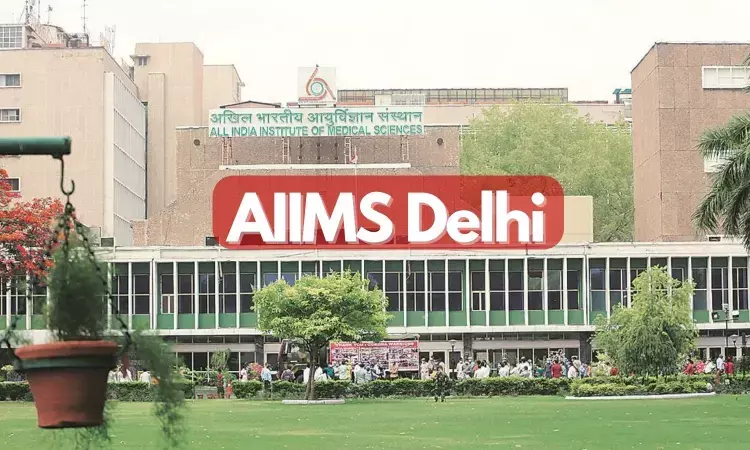- Home
- Medical news & Guidelines
- Anesthesiology
- Cardiology and CTVS
- Critical Care
- Dentistry
- Dermatology
- Diabetes and Endocrinology
- ENT
- Gastroenterology
- Medicine
- Nephrology
- Neurology
- Obstretics-Gynaecology
- Oncology
- Ophthalmology
- Orthopaedics
- Pediatrics-Neonatology
- Psychiatry
- Pulmonology
- Radiology
- Surgery
- Urology
- Laboratory Medicine
- Diet
- Nursing
- Paramedical
- Physiotherapy
- Health news
- Fact Check
- Bone Health Fact Check
- Brain Health Fact Check
- Cancer Related Fact Check
- Child Care Fact Check
- Dental and oral health fact check
- Diabetes and metabolic health fact check
- Diet and Nutrition Fact Check
- Eye and ENT Care Fact Check
- Fitness fact check
- Gut health fact check
- Heart health fact check
- Kidney health fact check
- Medical education fact check
- Men's health fact check
- Respiratory fact check
- Skin and hair care fact check
- Vaccine and Immunization fact check
- Women's health fact check
- AYUSH
- State News
- Andaman and Nicobar Islands
- Andhra Pradesh
- Arunachal Pradesh
- Assam
- Bihar
- Chandigarh
- Chattisgarh
- Dadra and Nagar Haveli
- Daman and Diu
- Delhi
- Goa
- Gujarat
- Haryana
- Himachal Pradesh
- Jammu & Kashmir
- Jharkhand
- Karnataka
- Kerala
- Ladakh
- Lakshadweep
- Madhya Pradesh
- Maharashtra
- Manipur
- Meghalaya
- Mizoram
- Nagaland
- Odisha
- Puducherry
- Punjab
- Rajasthan
- Sikkim
- Tamil Nadu
- Telangana
- Tripura
- Uttar Pradesh
- Uttrakhand
- West Bengal
- Medical Education
- Industry
Free rapid MRI service at AIIMS Delhi to asses iron deposition in cardiac muscle of thalassemia patients

50 patients can be scanned easily within a day as part of surveillance/screening camps for thalassemia patients. This service is currently being provided free of cost to all thalassemia patients at AIIMS,'' Dr Jagia said.
New Delhi: The AIIMS Delhi has started providing free-of-cost rapid cardiac MRI service which can assess the amount of deposition of iron in the cardiac muscle in patients suffering from thalassemia in around eight minutes.
This service is currently being provided free of cost to all thalassemia patients at the hospital as part of AIIMS- University College London (UCL) collaboration project, Dr Priya Jagia, head of department of Cardiovascular Radiology at AIIMS, Delhi said on Wednesday.
“This unique MRI protocol, developed by Professor James Moon and team in the UK, can measure cardiac iron in around eight minutes (a major reduction in time as a standard cardiac MRI takes 45 about minutes).
Also Read:From Cancer Medicines to Insulins: AIIMS Expands Free Medication List
Thus, 50 patients can be scanned easily within a day as part of surveillance/screening camps for thalassemia patients. This service is currently being provided free of cost to all thalassemia patients at AIIMS,” Dr Jagia said.
Measuring iron deposition can improve the treatment outcome in thalassemia patients, said Dr Tulika Seth, a professor in the department of Hematology. “Blood tests sometimes may not predict the level of iron deposition in the cardiac muscle and excess deposition may lead to heart failure in patients suffering from Thalassemia,” Dr Seth said.
With an estimated 42 million beta-thalassemia carriers and 10,000 new cases reported each year, one in eight patients reside in India. Children with thalassemia and sickle cell anaemia require lifelong blood transfusions, Dr Jagia said.
“These blood transfusions are lifesaving but deliver excess iron in the body which is deposited in various organs (liver, heart, pancreas etc). Cardiac iron deposition is the main cause of cardiac dysfunction and death in thalassemia patients (50-70 per cent),” she said.
To prevent this iron overload cardiomyopathy – excess iron needs to be removed by timely chelation therapy. Serum ferritin is the most widely used marker to detect iron overload in thalassemia patients, but multiple studies have shown serum ferritin levels to be a poor predictor of cardiac iron deposition, she said.
“A special cardiac MRI technique is currently the worldwide gold standard for cardiac iron detection. However, MRI is considered expensive and time consuming – not available widely and used scarcely. More so, MRI protocols are not standardized and manpower not adequately trained to correctly acquire and interpret the cardiac MRI scans,” Dr Jagia stated.
“Thalassemia patients sometimes study the liver iron,but do not study the deposition of iron in the heart which over the time affects the functioning of the cardiac muscle. So what happens is liver iron may not correspond to the iron in the heart and sometimes the liver iron may be low and iron deposition in the heart may be high and the person goes into cardiac failure and they usually die by 22-25 years.
If this is detected on time by this simple test, which in India outside AIIMS would cost about Rs 50,000, here they are doing totally free of cost,” elaborated Dr Rima Dada, professor in charge of the media cell at AIIMS Delhi.
AIIMS is also willing to train the doctors on this specialised technique, Dr Dada added.
Kajal Rajput joined Medical Dialogues as an Correspondent for the Latest Health News Section in 2019. She holds a Bachelor's degree in Arts from University of Delhi. She manly covers all the updates in health news, hospitals, doctors news, government policies and Health Ministry. She can be contacted at editorial@medicaldialogues.in Contact no. 011-43720751


